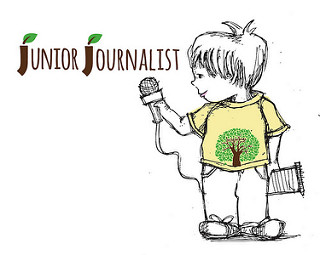
When it comes to kids, people don’t think about happiness enough these days. They think about success. They think in comparisons. They think about milestones, graduations and shiny trophies.
They think about things like redshirting a potential Kindergartener—not so that he will be happy, but so that he will have an advantage on the playing field or in the classroom.
They think about how many soccer teams a 9-year-old should play on at any given time to increase her odds of getting a full ride to some top-rated college at some point in the future.
They think about the obstacles that make parenting such an exhausting job. Yes, they think a lot about those.
But they don’t spend a lot of time thinking about what makes kids happy.
Once upon a time, childhood was filled with endless days spent outside and very little TV.Imaginations ran wild and kids made their own fun with nothing but a few Matchbox cars and an old cardboard box. They played, they learned and they socialized. But most of all, they had fun.
Life is far too scripted today. Plans are made. Classes are attended. Craft projects are intended to mimic those found on Pinterest. Gone are the days of free play and creating something out of nothing. Many kids today are simply following a script.
How can we focus on happiness when there is always so much to do? We can start by taking a breath (don’t worry, that enormous pile of laundry will wait for you), and then we can take a few cues from happy kids.
Here’s what keeps little ones happy:
1. They eat on time.
I know what you’re thinking; that’s too simple to be a real parenting strategy. Think again. Have you ever been so hungry that you just wanted to scream? That’s how kids feel when they miss a snack or have to wait two hours past their normal mealtime to participate in some super-fancy family dinner.
Eating at regular intervals refuels their growing brains and bodies and keeps hunger under control.When kids are calm and satisfied, they experience greater happiness.
2. They get consistent sleep.
I know, I know, some kids are better sleepers than others
3. They play without instructions.
Unstructured playtime appears to be a lost art these days. It used to be that kids made their own fun. Today, kids are over-scheduled, dialed in and in awe of toys that essentially do the playing for them. Sure, those garbage trucks with all of the bells and whistles are neat, but be sure to mix in some wooden trucks and building blocks. And, please, take a look at the busy schedule and find some time where your kids can just play each day. Play is good for the soul.
4. They are allowed to express emotions.
Kids yell when they’re mad. They cry when they’re sad. They might even stomp their feet and run around in circles when they’re not sure what to feel. And sometimes, if you’re really lucky, they do all of that in the middle of aisle nine at your friendly neighborhood Target.
Let them. Kids need to express their emotions. While adults know to call a friend to vent when the going gets tough, kids are a bit more primitive. Shushing them and publicly shaming them doesn’t help. Let them vent in their own little way and then offer to help.
Enduring a public temper tantrum might feel overwhelming in the moment, but it’s better than a lifetime of internalizing negative emotions that could lead to eating issues, depression or other emotional problems for your child.
5. They get to make choices.
Kids have very little control over their lives. They are constantly being told where to go, what to do and what to eat.
Let your kids choose their outfits. Allow them to choose the dinner menu one night per week. Ask them what classes they want to take. Give them the opportunity to make some decisions and watch them smile in return.
6. They feel heard.
Kids are intuitive. Even toddlers can tell when parents are tuning them out or answering on autopilot. When kids feel like their parents truly listen to them (about everything from Lightning McQueen’s best race to what they learned in school), they feel more connected. This increases their self-confidence and increases their overall happiness.
Listen when your children speak. It’s the best way to build an open and honest relationship with your child and it makes your child happy.
Are you still with me? Because this last one is important.
7. They experience unconditional love.
Kids mess up. You tell them not to jump off the couch over and over again, but they do it anyway.And then they cry. Because childhood is largely based on trial and error, and sometimes kids just need to take chances. Forgive them. Love them anyway.
When kids know that their parents love and support them no matter what, they are more likely to take healthy risks. They are confident and secure in their decisions. They learn that sometimes people make mistakes, but there is always a chance to right a wrong.
Originally published by Katie Hurley on HuffPost.






